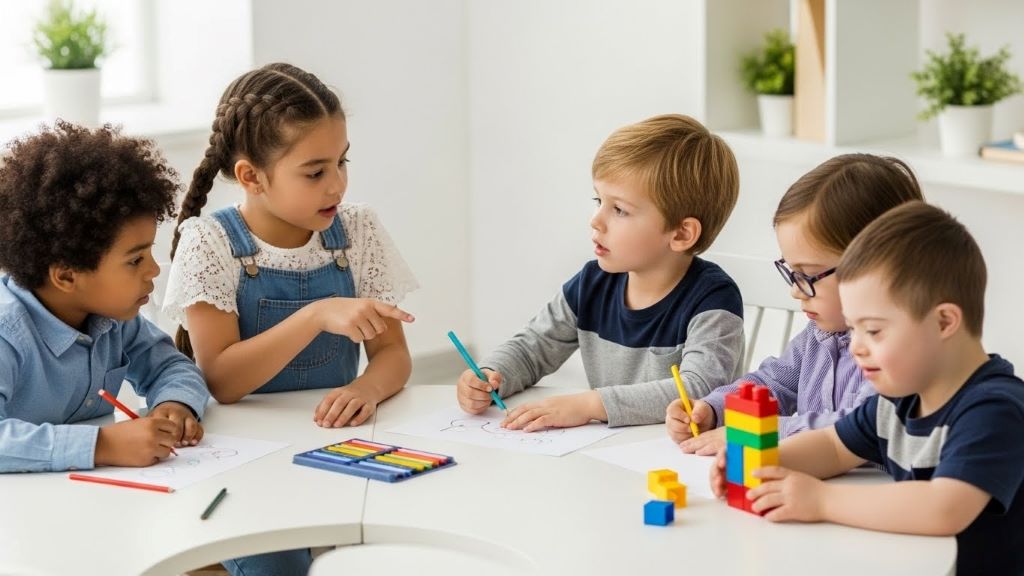Learning problems in children encompass a variety of neurobiological disorders that directly affect the way the brain receives, processes, stores, responds and produce any information. Children who have a learning disability may have difficulty writing, thinking, listening, speaking, reading, spelling, and even mathematical calculations.
Learning problems in children can also generate attention deficit, which can occur along with problems of memory, coordination, social skills and lack of emotional maturity. Despite their situation, children with learning difficulties are usually very intelligent. What happens is that the information is processed differently by your brain, which generates discrepancy between intelligence and performance in school.
Learning problems in children

Several studies have determined that among the causes of learning problems in children are genetic factors. For example, recessive chromosomes that generate specific problems in reading. Neurological dysfunctions are also considered significant causes of the inability to learn by doing.
According to other research, there are also pre, peri and postnatal factors, or complications during pregnancy, while others determine that older mothers and fathers are more likely to have a dyslexic child. However, although the child presents this problem, some therapies can improve their learning.
“Statistics have shown that 10 or 15% of children have learning problems”. Learning problems in children can be a cause of frustration for them and their parents.
Characteristics of a child with learning problems

Learning problems can be of the compulsion or over-attention type, in which children tend to pay more attention to one thing for a long time and disregard other stimuli that are also important for their development.
On the other hand, there are those of impulsive distractibility or low attention. In which children tend to focus their attention for a short time on one thing and then quickly move on to another.
These are some of the characteristics of a child with learning problems:
- He has difficulty understanding and following instructions.
- He has difficulty remembering what people say.
- He does not master the basic skills of reading, spelling, writing, and math.
- Distinguishing between the right and the left is difficult.
- It can confuse the order of numbers.
- He has a lack of coordination when walking, doing sports or simple activities such as tying his shoelace.
- You can easily lose your school items.
- It presents confusion about the times. For example, do not find the difference between “yesterday” and “today.”
- It may confuse some words.
- Lack of attention is another learning problem in children.
Solutions to the learning problem

The disadvantages that the child may present when incorporating or expressing knowledge must be evaluated by an expert who determines whether or not it presents learning problems. A psychiatrist child can also help coordinate the evaluation and work with professionals from the school to carry out school tests.
Here we mention some solutions that can be very useful to face a learning problem:
- Children need to feel loved, understood and respected so that the learning process is easier.
- They must have affection, affection and physical closeness. This helps them to have confidence and to release doubts about their abilities.
- It is important that they learn through play and hands-on activities.
- They should be encouraged to play with others and establish friendships.
- They should be free to make mistakes and ask all their questions so that any subject is clear.
- The parents should treat them with fairness and consideration.
- They should set limits and rules, but when they are accused of some reason, they should be treated with affection.
- It is important that they learn to face their emotions, frustrations, and fears.
- It is essential to expose them too difficult situations so that they overcome their fears.
- Parents should allow them to cry and release their feelings.
- They should always receive trust from their parents.
When they do a good deed, it is very important to praise them, congratulate them and encourage them to keep progressing. When they fail, parents should teach them that defeats are part of life and that they should persevere.
It is vital to strengthen the child’s confidence in himself so that he has a healthy development. It will also help parents and other family members to understand the problem better and to cope with the realities of living with a child with learning problems.






